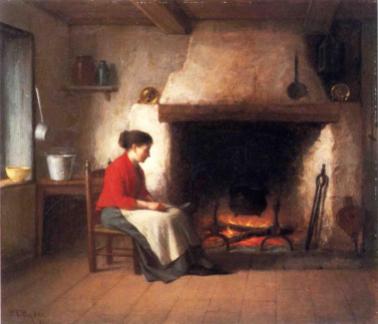
I’ve been leading Amherst Method writing groups since 2008 – in arts venues, in community centres, in my local library, and from the sitting room of my house in north Leitrim. In late March 2020, shortly after lockdown was announced, we left my sitting-room and entered into the Zoom-room.
The first few sessions were challenging. Together we learned a new and unfamiliar technology; we learned how to function as a group in a virtual space; we learned how to be spontaneous, while also being respectful of each other’s voices.
Some things stayed the same. As before, people gathered once a fortnight to write together in a safe and inspiring environment, based on the Amherst Method guidelines. At each session I offered a prompt and invited the group to write in response. Silence fell as words poured onto the page, for 10, 20, 30 minutes. If someone got stuck I could meet them one-to-one in a private “breakout room”, to help them find their flow again.
As before, I invited people to read what they had written; the group practiced the skill of “close listening” – a vital skill for every writer; and those who chose to read received positive feedback that helped them develop their voices. People wrote about everything under the sun in these sessions, including the minuscule virus that had upended our lives. One person wrote the first chapter of a witty Zoom-room murder mystery…
Sometimes a video connection broke down, sometimes the audio was glitchy – in rural Ireland strong broadband is a gift, not a given. The disadvantages of writing together online are obvious: you don’t get to meet your fellow participants in the flesh; you can’t read their body language or hear the small gasps of admiration as you read your work; you don’t get to chat one-to-one during the break.
But there are advantages. You can join in from anywhere in the world. And you don’t have to get into your car on a dark, blustery winter’s night to drive to my sitting-room in north Leitrim.







 A writing prompt to keep you going for a few weeks: Write a short story. How? There is plenty of advice on the Internet, some excellent, some less so. I chose the following from
A writing prompt to keep you going for a few weeks: Write a short story. How? There is plenty of advice on the Internet, some excellent, some less so. I chose the following from 

 This week’s prompt is a quote from
This week’s prompt is a quote from  “It was the day the dandelions turned into clocks.” — Sherrie Scott, member of the original Scratching Hens.
“It was the day the dandelions turned into clocks.” — Sherrie Scott, member of the original Scratching Hens. This week’s prompt was given to me by Eva O’Callaghan, another Amherst Method creative writing facilitator.
This week’s prompt was given to me by Eva O’Callaghan, another Amherst Method creative writing facilitator.